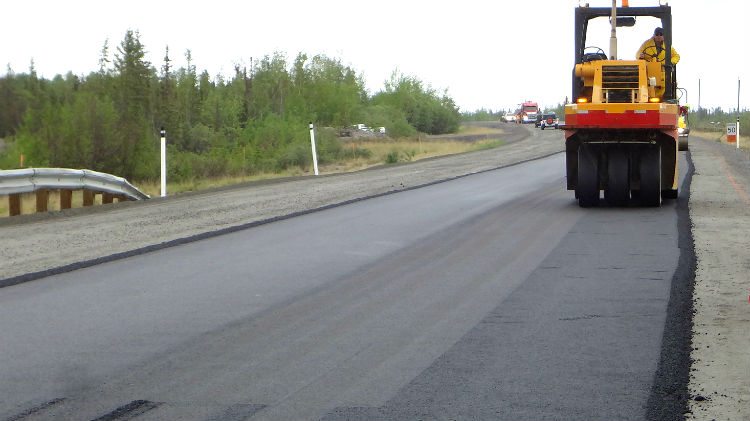Tired of driving on bumpy highways?
Relief could be on the way, with the department of transportation currently testing a different type of asphalt known as cold mix asphalt.
Crews have installed a test section of cold mix on highway three, also known as the Yellowknife highway.
“We have put in one kilometre of this material on a section of road that we think will give it a good performance evaluation,” said Kevin McLeod, the director of highways and marine.
The department of transportation typically uses chip seal for road resurfacing, which is installed by distributing a thin base of hot oil and then embedding crushed rock into it. The crushed rock is then rolled into a smooth pavement surface.
The new cold mix material is an oil-based polymer material, similar to traditional asphalt, that is manufactured in the Edmonton area.
McLeod describes it as more durable than chip seal, but weaker than normal asphalt. A new layer of asphalt, for example, is usually 75 to 100 mm thick and installed when hot, whereas the new cold mix asphalt will be around 33 mm thick.
“Folks will notice a dark, distinctive surfacing,” said McLeod. “We’re looking forward to putting it through its paces in terms of truck traffic, a full season of freeze and thaw and normal car traffic.”
Crews have already installed the material on highway three around kilometre 320 – just outside Yellowknife.
The department is hoping the material will fare better than chip seal, which McLeod says doesn’t distribute weight as well as asphalts.
It’s not the first time the cold mix asphalt has been used in the North, however.
“It’s been used along all the streets in N’Dilo and it’s been tested in the Yukon,” said McLeod. “Now we’re trialing it under highway conditions.”




